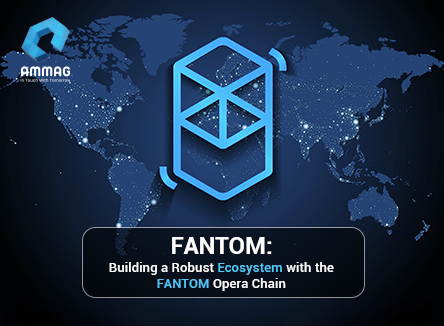Top Use of Blockchain Technology in Real Estate Industries
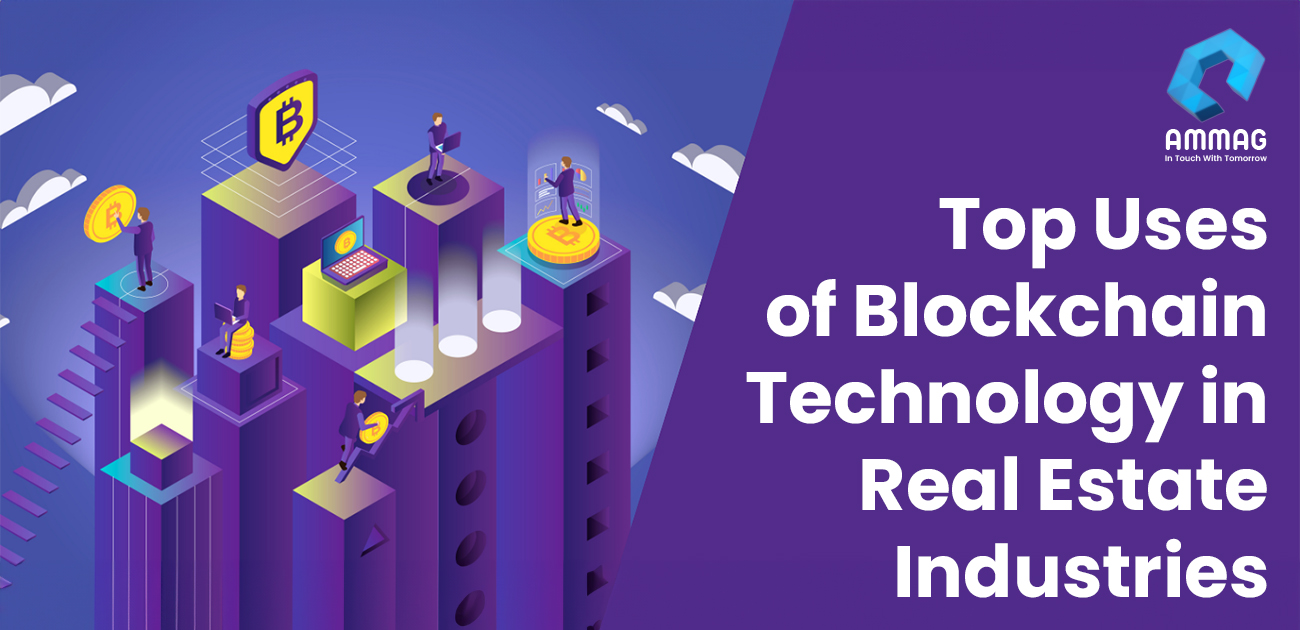
Blockchain technology is fundamentally changing the landscape of real estate blockchain development by addressing one of its most critical aspects: property ownership records. This revolutionary technology has brought much-needed transparency, security, and efficiency to the domain of property ownership. In this article, we will explore how blockchain technology is redefining the way property ownership records are maintained, the impact of Smart contract and Defi technology in Real estate and the latest trends in this area.
Blockchain and Property Ownership Records
Blockchain's inherent features, such as immutability and decentralization, have made it an ideal solution for recording and managing property ownership records. Traditional record-keeping methods are often prone to errors and fraudulent activities, leading to disputes and mistrust. Most of leading blockchain solution provider agencies use blockchain technologies in Real Estate projects, to ensure the accuracy and security of these real estate records through a decentralized ledger that is accessible to all relevant parties.
One of the key advantages of using blockchain for property ownership records is the elimination of intermediaries. With blockchain, property transfers and title deeds can be securely and transparently recorded on a distributed ledger, reducing the need for costly intermediaries, such as title companies. This streamlines the process and makes it more cost-effective for both buyers and sellers.

Latest Trends in Blockchain-Based Property Records
The real estate industry is continuously evolving, and blockchain technology is at the forefront of these advancements.
Here are some of the latest trends in blockchain-based property records:
NFTs for Real Estate :
Non-Fungible Tokens (NFTs) have gained popularity in the art and
entertainment industries, and they are making their way into real
estate. NFTs can represent ownership of a property, making it easier to buy, sell, and invest in
real estate assets.
Cross-Border Transactions :
Blockchain's ability to facilitate secure and transparent
cross-border transactions is revolutionizing international real estate investments. Investors can
participate in real estate markets around the world with reduced friction and increased security.
Integration with IoT
:
The Internet of Things (IoT) devices can be integrated with blockchain to provide real-time data about a
property. This data, such as temperature, humidity, and security, can be recorded on the blockchain,
providing valuable information to property owners and potential buyers.
Smart Contracts in Real Estate
One of the most revolutionary applications of blockchain technology in the real estate sector is the use of smart contracts. These self-executing contracts with the terms of the agreement directly written into code have the potential to transform how real estate transactions are conducted. Let’s delve into this section to see how smart contracts are being employed to automate and streamline real estate transactions and discuss their numerous advantages.
The Rise of Smart Contracts in Real Estate
:
Traditional real estate transactions often involve many intermediaries, paperwork, and the need for trust
in various parties. Smart contracts are changing this landscape by providing a more efficient and secure
way to conduct property transactions.
Smart contracts in real estate work by automating the various steps involved in a transaction. This can include the transfer of ownership, the release of funds, and the management of escrow accounts. The contract's code is executed automatically when predefined conditions are met, eliminating the need for a middleman.
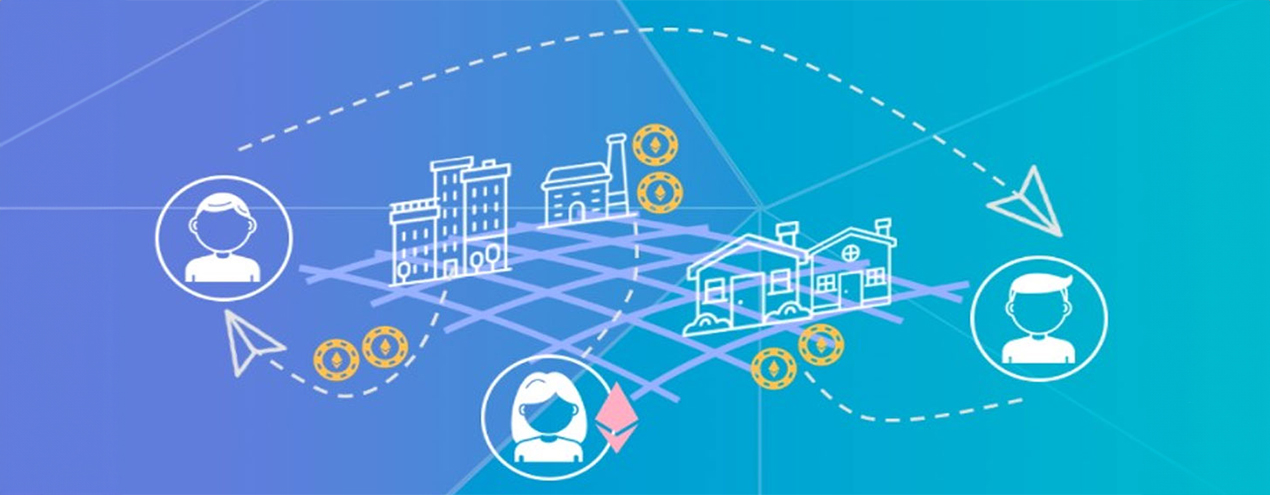
Advantages of Smart Contracts in Real Estate
Speed and Efficiency :
Since smart contracts are recorded on a blockchain, they provide a transparent and tamper-proof record of
all transactions. This eliminates the risk of fraud and disputes.
Security and Transparency :
Cryptocurrency owners use digital wallets developed by leading blockchain development firms
to store their funds. A wallet contains a pair of keys: a public key (similar to an account number)
and a private key (akin to a password). The private key is essential for authorizing transactions.
Cost Reduction :
Smart contracts reduce the need for intermediaries such as real estate agents, notaries, and escrow
services, resulting in cost savings for both buyers and sellers.
Global Accessibility :
Smart contracts enable cross-border transactions, allowing buyers and sellers from different parts of the
world to engage in real estate deals more easily.
Trust and Confidence
:
With the transparency and security provided by blockchain and smart contracts, there is increased trust
among all parties involved in the transaction, reducing the risk of disputes.
Latest Trends in Smart Contract Usage
Smart contracts in real estate continue to evolve. Some of the latest trends in this space include:
Fractional Ownership
:
Smart contracts are being used to facilitate fractional ownership of real estate properties. This enables
investors to own a portion of a property, making real estate investments more accessible.
Integration with Oracles:
Oracles are third-party services that provide external data to
smart contracts. In real estate, oracles can provide up-to-date information about property prices
and market trends, helping smart contracts make more informed decisions.
The Emergence of DeFi Development Services in Real Estate
Decentralized Finance, commonly known as DeFi, is a revolutionary concept that extends beyond the traditional financial sector. It is rapidly making its way into real estate, opening up new opportunities and changing the way people invest and transact in the property market.
In this section, we'll explore how Decentralized Finance are impacting the real estate industry.
DeFi and Real Estate :
DeFi refers to a set of financial services and applications built on
blockchain technology. These services aim to eliminate intermediaries,
increase accessibility, and promote financial inclusivity.
In the context of real estate, decentralized finance
development services is taking root in various ways:
Tokenization of Real Estate:
: DeFi facilitates the tokenization of real estate assets, breaking down properties into digital tokens
that can be easily bought, sold, and traded on decentralized platforms. This tokenization opens doors to
fractional ownership, enabling individuals to invest in properties with smaller amounts of capital.
Decentralized Exchanges :
DeFi platforms offer decentralized exchanges where property tokens can be traded, creating a liquid and
efficient marketplace for real estate assets. This reduces the barriers to entry for investors and
enhances liquidity in the real estate market.
Smart Contracts:
Smart contracts play a crucial role in DeFi development services. In real estate, these contracts automate
property transactions, eliminating the need for intermediaries like agents and lawyers. Buyers and sellers
can engage directly on the blockchain, saving time and reducing costs.
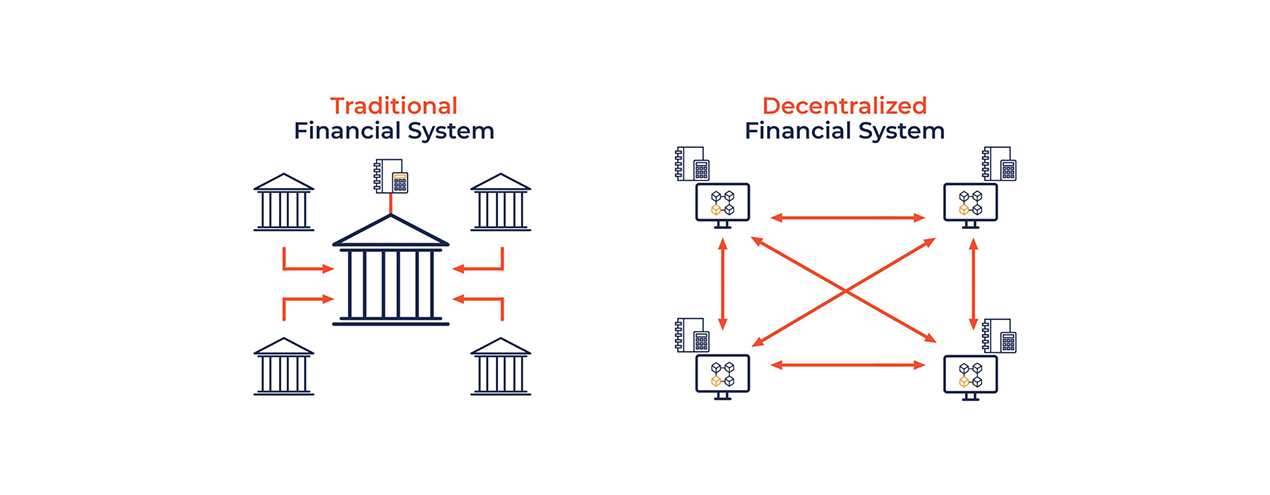
Advantages of DeFi in Real Estate
The integration of DeFi technology in real estate offers several notable advantages:
Accessibility
:
DeFi makes real estate investment more accessible to a broader range of investors. Fractional ownership,
lower entry costs, and decentralized exchanges democratize property investment.
Efficiency
:
Transactions in the real estate market are known for their lengthy
processes and paperwork. DeFi streamlines these processes through
automation, reducing the time and effort required for property transactions.
Transparency:
DeFi's transparent and decentralized nature enhances transparency in the real estate market. Property
information, transactions, and ownership records are readily accessible on the blockchain.
Reduced Costs
:
The elimination of intermediaries, coupled with automation, reduces transaction costs in real estate. This
is a significant benefit for both buyers and sellers.
Global Investment
:
DeFi opens up opportunities for global property investment. Investors can participate in real estate
transactions worldwide, transcending geographical boundaries.
The intersection of DeFi and real estate is still in its early stages, but the potential for innovation and transformation is substantial. As more DeFi development enter the real estate sector, we can expect further disruption and an increased shift toward decentralized and inclusive property markets.

Challenges and Considerations in Real Estate Blockchain and DeFi Adoption
The adoption of blockchain technology and decentralized finance (DeFi) . in the real estate sector is undeniably promising, but it also comes with its fair share of challenges and considerations. In this section, we'll explore some of the key hurdles and important factors to keep in mind as this transformation unfolds.
Regulatory Compliance
:
The real estate industry is highly regulated in many countries,
and the adoption of blockchain and DeFi introduces new regulatory
considerations. Governments and regulatory bodies are still developing the necessary frameworks
to address these emerging technologies. Ensuring compliance with local laws and regulations is crucial for
a successful transition to blockchain-based real estate transactions.
Security and Privacy:
While blockchain is renowned for its security features, it's not
immune to threats. Security breaches and hacks are a concern, especially
when handling sensitive property data and transactions. Implementing robust security measures and
privacy protocols is essential to protect the integrity of real estate transactions.
Education and Adoption
:
Blockchain and DeFi are relatively new concepts for many real
estate professionals and investors. Education and training are
essential to bridge the knowledge gap and encourage widespread
adoption. Real estate professionals need to understand how
to navigate blockchain platforms and DeFi services effectively.
Transition Period
:
The transition from traditional real estate practices to
blockchain-based systems projects may be challenging.
It requires adapting existing processes, training staff, and ensuring a smooth integration of new
technologies. This transition period should be carefully managed to minimize disruptions.
Scalability
:
In an industry as interconnected as real estate, ensuring the interoperability of different blockchain
networks and DeFi platforms is crucial. Data and transactions should seamlessly flow between systems to
avoid bottlenecks.
Interoperability
:
Some crypto games are built as DApps, allowing players to interact directly with smart contracts on the
blockchain. These DApps often provide transparency and security.
Risk Management
:
The risk associated with blockchain-based real estate
transactions needs to be assessed and managed. While blockchain reduces certain risks, such as
fraud, it may introduce new risks that require careful consideration.
User Experience
:
User experience is a critical factor in the successful adoption of blockchain and DeFi in real estate.
Platforms and applications need to be user-friendly, ensuring that real estate professionals and investors
can navigate the technology without complications.
Market Acceptance
:
The acceptance of blockchain-based real estate transactions by the broader market is also a consideration.
Trust in this technology needs to be established among buyers, sellers, and industry stakeholders.
As the real estate industry takes steps toward embracing blockchain and DeFi, addressing these challenges and considerations is essential for a seamless transition of real estate blockchain development. With careful planning and collaboration, the benefits of these technologies can be harnessed to drive efficiency, transparency, and inclusivity in real estate transactions.

Emerging Trends of Blockchain Development and DeFi
The integration of blockchain technology and DeFi into the real estate industry is an evolving process, and as it continues to mature, several emerging trends and future possibilities are worth exploring.
Real Estate Crowdfunding
:
Blockchain-based crowdfunding platforms are on the rise. They allow multiple investors to pool their
resources and collectively invest in real estate projects. This democratizes real estate investment and
makes it accessible to a wider range of people.
NFTs in Real Estate
:
Non-fungible tokens (NFTs) have gained immense popularity in the world of digital art and
collectibles. It's only a matter of time before they make their way into real estate. NFTs can
represent property deeds, making property ownership more accessible and transparent.
Cross-Border Transactions
:
Blockchain and DeFi enable cross-border real estate transactions with greater ease. Investors from around
the world can participate in property markets, potentially driving more international investment.
Smart Cities and IoT
:
Smart cities are increasingly leveraging blockchain and the Internet of Things (IoT) to create more
efficient and interconnected urban environments. Property transactions in smart cities can benefit from
these innovations, streamlining processes and enhancing sustainability.
Increased Transparency
:
Blockchain's transparent and immutable ledger ensures that property records are accurate and accessible.
This transparency can help reduce fraud and disputes in real estate transactions.
Green Real Estate
:
The real estate industry is placing a greater emphasis on sustainability and green building practices.
Blockchain can be used to verify and record the environmental credentials of properties, making it easier
for eco-conscious buyers to find sustainable real estate.
Advanced Property Management
:
Blockchain can revolutionize property management by providing secure, tamper-proof records of property
maintenance and repairs. Tenants and property managers can have greater confidence in the accuracy and
reliability of these records.
Augmented Reality (AR) and Virtual Reality (VR)
:
AR and VR technologies are becoming essential tools in real estate. Blockchain can enhance these
technologies by providing secure and up-to-date property data for virtual property tours and
presentations.
Decentralized Mortgage Services
:
DeFi platforms are exploring decentralized mortgage services, potentially reducing the barriers to
homeownership by offering more accessible and transparent lending solutions.
As the real estate industry continues to embrace blockchain and DeFi, these trends are likely to reshape the way property transactions occur. While these technologies present challenges, they also offer immense opportunities for greater accessibility, transparency, and innovation in real estate.

Pioneering Real Estate Blockchain Development Company
AMMAG Technologies, a leading name in the world of blockchain technology, has been instrumental in transforming the real estate industry through innovative solutions and a commitment to excellence in Real Estate Blockchain Development. With a focus on transparency, security, and efficiency, AMMAG Technologies has emerged as a key player among top blockchain companies in shaping the future of property transactions.
Conclusion
In conclusion, the future of real estate is undergoing a transformative shift with the adoption of blockchain and DeFi. These technologies promise a more accessible, efficient, transparent, and secure real estate industry. As regulatory frameworks evolve and the market increasingly embraces these innovations, the potential impact on the real estate landscape is significant.
If you have any questions, or would like to explore how blockchain and DeFi can benefit your real estate endeavors, please don't hesitate to reach out or read our related bogs. We're here to support your journey into this exciting future.







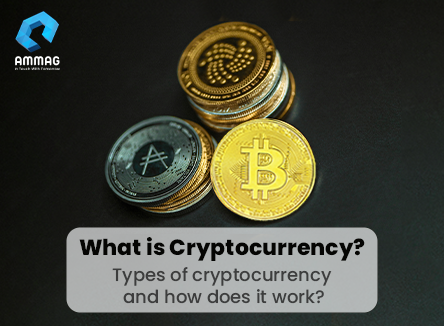





-and-How-Does-It-Work/Main-Image_02.jpg)




















